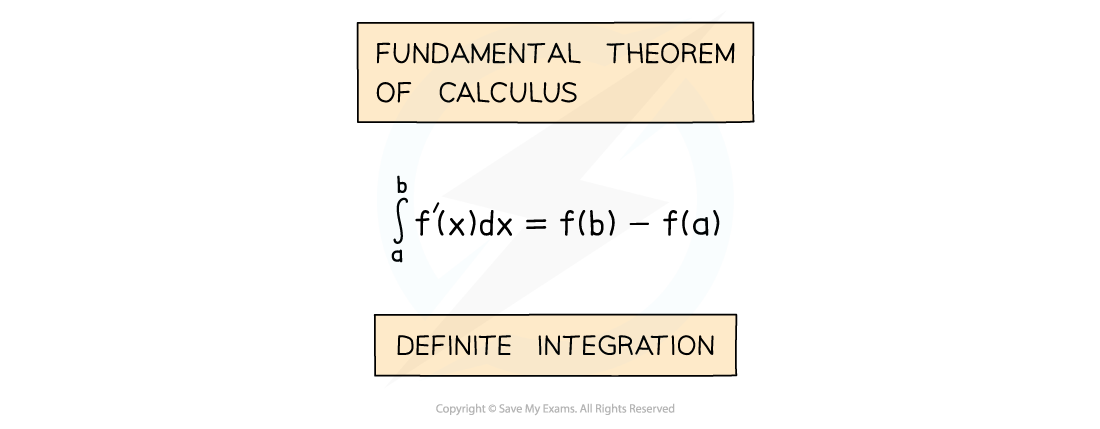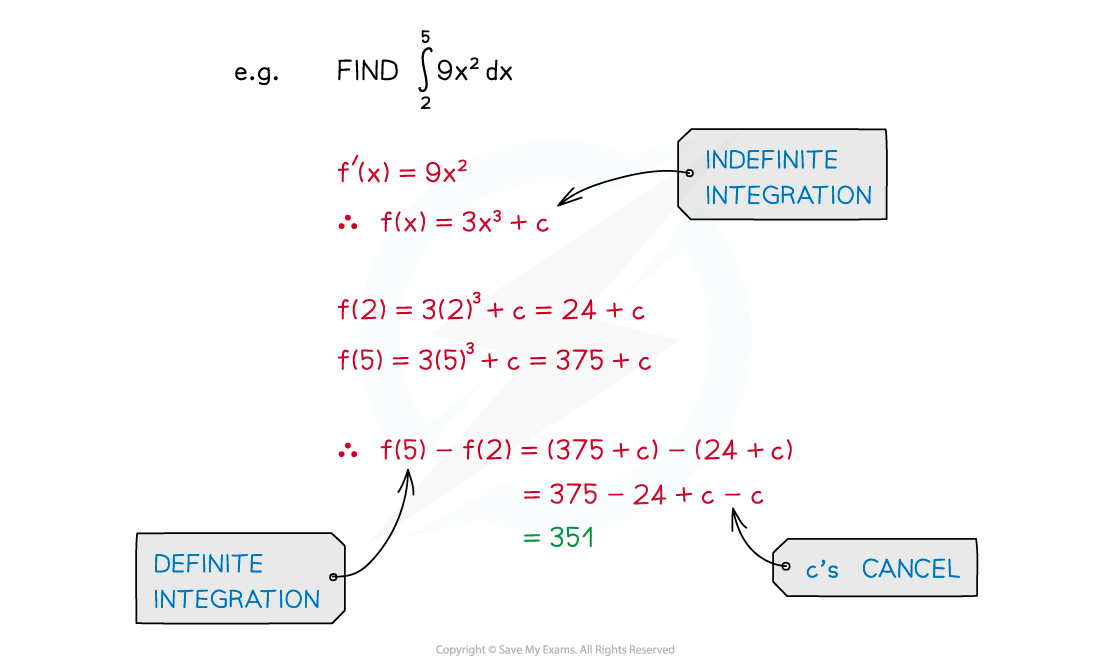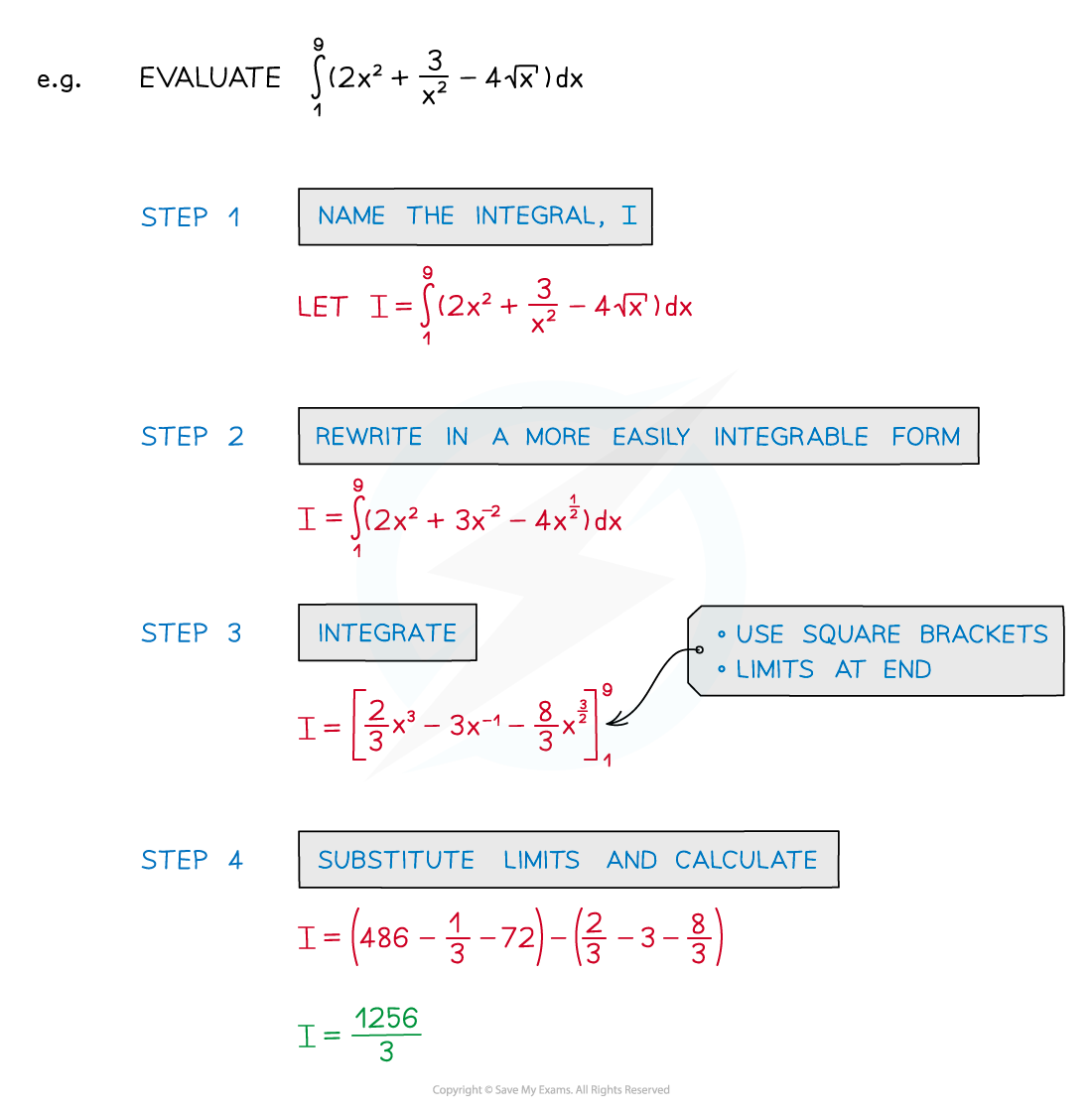Definite Integration (AQA AS Maths): Revision Note
Exam code: 7356
Did this video help you?
Definite integration
What is definite integration?
Definite Integration occurs in an alternative version of the Fundamental Theorem of Calculus
This version of the Theorem is the one referred to by most AS/A level textbooks/websites

a and b are called limits
a is the lower limit
b is the upper limit
f’(x) is the derivative of f(x)
Why is there no constant of integration in definite integration?

“+c” would appear in both f(a) and f(b)
Since we then calculate f(b) – f(a) they cancel each other out
There would be a “+c” from f(b) and a –“+c” from f(a)
So “+c” is not included with definite integration
How do I find the value of a definite integral?
STEP 1: If not given a name, call the integral
This saves you having to rewrite the whole integral every time!
STEP 2: If necessary rewrite the integral into a more easily integrable form
Not all functions can be integrated directly
STEP 3: Integrate without applying the limits
Notation: use square brackets [ ] with limits placed after the end bracket
STEP 4: Substitute the limits into the function and calculate the answer

How do I find a definite integral on my calculator?
Advanced scientific calculators can work out the values of definite integrals
The button will look similar to:


(Note how the calculator did not return the exact value
of the integral)
Examiner Tips and Tricks
Look out for questions that ask you to find an indefinite integral in one part (so “+c” needed), then in a later part use the same integral as a definite integral (where “+c” is not needed).
Worked Example
Find the value of
Start by expanding the brackets inside the integral
Integrate as usual (here it's a 'powers of ' integration)
Write the answer in square brackets with the integration limits outside
Now substitute 4 into that function
And subtract from it the function with 2 substituted in

Unlock more, it's free!
Did this page help you?